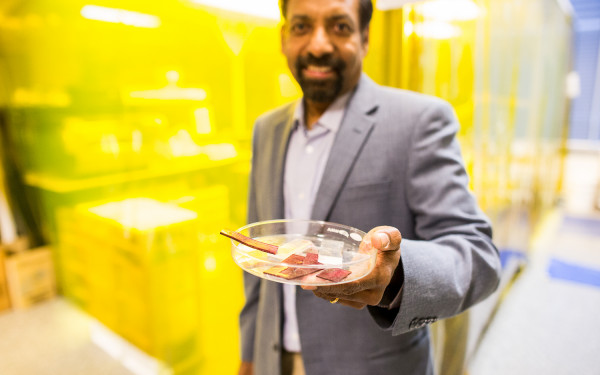ConU Cancer Breakthrough
Naturally Occurring Acid Kills Cancer, Prolongs Life
It seemed like a miracle when Concordia’s Biology department published their discoveries on the effects of lithocholic acid, but the scientists involved warn the public not to get ahead of themselves.
Dr. Vladimir Titorenko, Concordia professor and research chair was on a mission to fight human aging when he led a group of scientists to test the effects of 20,000 different compounds on the lifespan of yeast.
“Yeast is a very significant model organism because the aging of yeast is quite similar to the aging of human cells” says Titorenko. “One of the compounds that delayed aging in yeast was lithocholic acid.”
Once they established that LCA could prolong yeast life, the scientists were eager to test other potential uses for LCA and began experimenting with the acid on other types of cells. They were ecstatic to discover that when LCA was introduced to petri-dishes containing cancer cells the acid killed the cancer, and caused little damage to normal cells.
Concordia then partnered with scientists from the Jewish General Hospital’s Lady Davis Institute, the University of Saskatchewan and McGill University to continue their research and were excited by the results.
The selectively toxic effects of LCA on cancer cells have scientists and the media hinting at the possibility of developing an alternative and less painful method of fighting cancer.
Compared to the common treatments of chemotherapy and radiation where all cells are ravaged by deadly toxins, LCA could be the key to a more effective treatment for patients, because it strengthens or avoids normal cells while destroying the cancerous ones.
Now the media is buzzing with phrases like “cure for cancer” and “fountain of youth” to describe the acid, but Alexander Goldberg, a recent Concordia graduate who collaborated on the project, warns that there’s a lot more research to be done and that a marketable medicine is a long way away.
“To put it into perspective, this research is comparable to a 1970s videogame startup: this project is the Atari,” said Goldberg. “There’s still a good five, 10, 20 years to go before we’ll have an Xbox drug, or a PS3. What’s more important about this research right now is that we are learning about the way cancer cells grow and die. There’s a lot that’s still unknown. “
The next phase for the biology department is to begin testing the effects of LCA on mice injected with cancer. So now is the perfect time for students to get involved.
“We are looking to have young, enthusiastic, graduate students who are interested in science join in this work,” says Dr. Titorenko. “This is a wonderful time at Concordia for idealistic, dedicated people, who are willing to spend their life studying very important biological problems.”
If the experiments on mice are successful, scientists may partner with the pharmaceutical industry to develop clinical trials on humans.





_600_375_90_s_c1.jpg)
_600_375_90_s_c1.jpg)